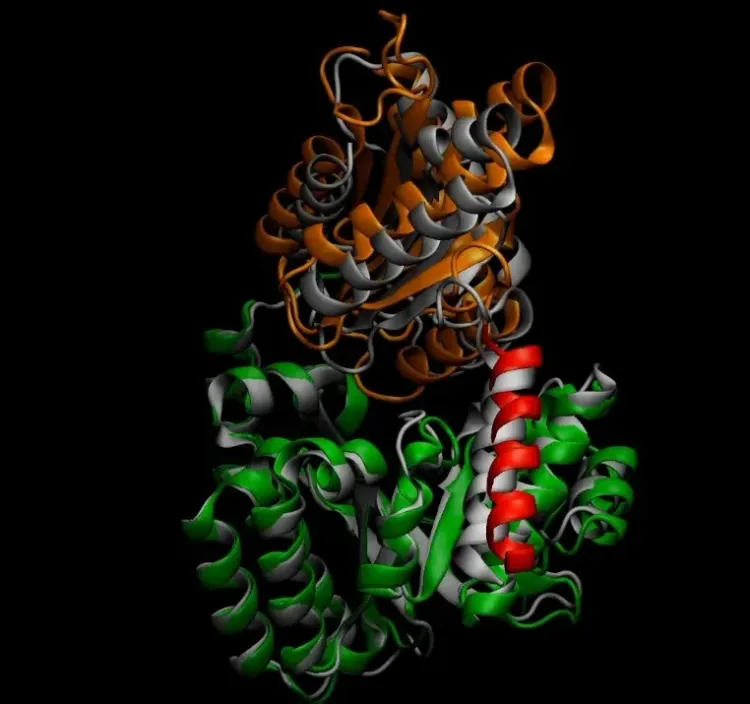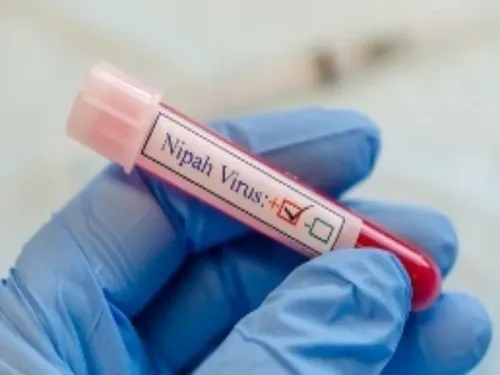How is Microsoft's new AI system transforming drug discovery?

Synopsis
Key Takeaways
- BioEmu accelerates drug discovery by decoding protein motions.
- It generates thousands of protein structures every hour.
- The technology offers insights in hours instead of years.
- Understanding protein dynamics is critical for effective drug design.
- BioEmu integrates various data sources for enhanced accuracy.
New Delhi, July 11 (NationPress) Microsoft has unveiled its groundbreaking AI system, BioEmu, designed to decode the intricate motions of proteins and accelerate drug discovery, as announced by CEO Satya Nadella on Friday.
The Biomolecular Emulator-1 (BioEmu-1) is a sophisticated deep learning model capable of generating thousands of protein structures each hour on just a single graphics processing unit (GPU).
“Grasping protein motion is crucial for understanding biology and enhancing drug discovery,” Nadella stated in a post shared on the social media platform X.
In conjunction with sharing a research paper detailing the model, Nadella remarked that “we're introducing BioEmu today, an innovative AI system that emulates the structural ensembles proteins form, providing insights in mere hours that would typically require years of simulation.”
Proteins are vital components involved in various biological processes, from building muscle fibers to defending against diseases, across all life forms.
While advancements have been made in recent years to understand protein structures, accurately predicting the structure of a single protein from its amino acid sequence has previously been unattainable.
However, with BioEmu-1, researchers can explore the diverse array of structures each protein can adopt, known as structural ensembles. This knowledge is essential for developing more effective drugs.
“BioEmu integrates over 200 milliseconds of molecular dynamics (MD) simulations, alongside static structures and experimental protein stabilities, utilizing novel training algorithms. It captures a wide range of functional motions—such as cryptic pocket formation, local unfolding, and domain rearrangements—and predicts relative free energies with an accuracy of 1 kcal/mol compared to millisecond-scale MD and experimental data,” scientists from AI for Science at Microsoft Research explained in their paper published in the journal Science.
The team emphasized that BioEmu offers “mechanistic insights by jointly modeling structural ensembles and thermodynamic properties.”
This innovative approach effectively mitigates the costs associated with MD and experimental data generation, showcasing a scalable pathway towards comprehending and designing protein functions.










